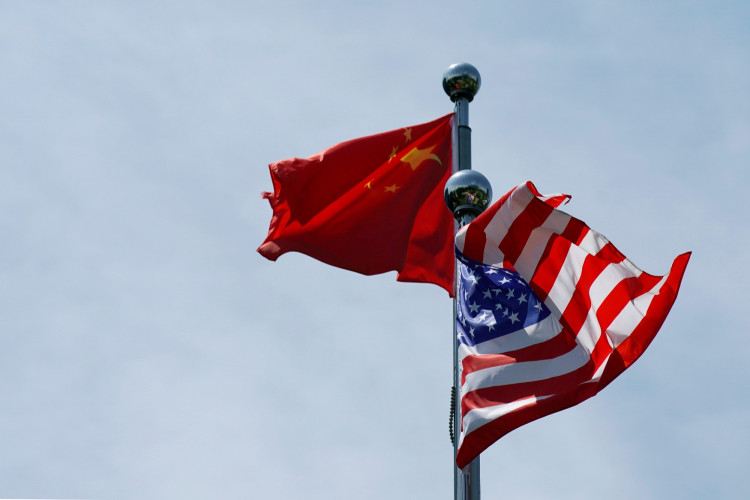The CIA has broadened its recruitment efforts to attract informants in China, Iran, and North Korea, extending an initiative that has already seen some success in Russia. The move reflects U.S. intelligence agencies' growing need for insights into authoritarian regimes that are increasingly opaque and critical to U.S. foreign policy.
On Wednesday, the CIA launched a comprehensive online campaign to recruit individuals within these nations, posting instructions in Mandarin, Farsi, and Korean across multiple platforms, including X (formerly Twitter), Facebook, Instagram, Telegram, and even the dark web. This recruitment drive aims to provide secure methods for potential informants to contact the CIA while emphasizing the importance of protecting their identities.
The initiative comes as global tensions rise, with China's growing cooperation with Russia and Iran, its increasing military assertiveness, and concerns over North Korea's nuclear weapons program. "Our efforts on this front have been successful in Russia, and we want to ensure that individuals in other authoritarian regimes know we're open for business," a CIA spokesperson said in a statement.
The CIA's interest in these countries, which it classifies as "hard targets" due to their governments' stringent surveillance and control, underscores its need for better intelligence to monitor and anticipate global threats. The agency has faced challenges in penetrating these regimes, particularly China, where surveillance technology has made gathering intelligence exceedingly difficult.
CIA Targets Disaffected Chinese Citizens
In addition to its broader recruitment push, the CIA is specifically focusing on Chinese citizens who are disillusioned with President Xi Jinping's government. CIA Deputy Director David Cohen stated that growing dissatisfaction with Xi's policies has created a window for recruitment. "There are plenty of people who have access to information and who are disaffected from the Xi regime in China," Cohen said. "They understand that working with us can help their country."
Xi Jinping's consolidation of power, which includes abolishing presidential term limits and enforcing harsh measures like the "zero-COVID" policy, has left segments of the population disillusioned. The CIA hopes to tap into this discontent, aiming to recruit individuals with access to valuable information. With China's economy slowing down and discontent brewing, the CIA sees an opportunity to gain crucial insights into the workings of Xi's administration.
The CIA has struggled in recent years to gather top-tier intelligence on China, particularly regarding Xi's inner circle. A 2017 report indicated that Beijing dismantled U.S. espionage operations within China, leaving U.S. intelligence blind to some of Xi's decision-making processes. As China's global influence grows and tensions with Washington escalate over issues like Taiwan and advanced technology, the CIA's need for better intelligence has become critical.
New Recruitment Methods and Challenges
To circumvent the growing surveillance apparatus in authoritarian regimes, the CIA is adapting its recruitment strategies. The agency's use of the dark web-an encrypted part of the internet that can't be indexed by traditional search engines-allows potential informants to contact the CIA anonymously, making it harder for authoritarian governments to track communications.
"China is a techno-authoritarian country," Cohen said, highlighting the extensive scrutiny on both Westerners in China and Chinese citizens. The dark web offers a more secure communication channel, enabling individuals to share sensitive information without revealing their identities.
This new recruitment push echoes similar efforts in Russia after its 2022 invasion of Ukraine. The CIA successfully used social media to recruit Russians, offering instructions on how to contact the agency via encrypted channels. The U.S. agency believes that a similar strategy will yield results in China, Iran, and North Korea, where internal dissatisfaction with leadership is growing.
Informants Beyond Borders
In addition to recruiting informants within these countries, the CIA is targeting Chinese nationals who leave the country. Cold War-style "walk-ins" at U.S. embassies are part of the recruitment strategy, as Chinese citizens abroad may feel more comfortable providing information about their government's activities. Cohen emphasized that this strategy is supported by an increasing number of CIA experts on China who are stationed worldwide.
"We are using the same model that we developed during the Cold War," Cohen said, referring to the cultivation of Soviet experts. The CIA has been expanding its cadre of Chinese language and culture specialists, deploying them globally to strengthen U.S. intelligence-gathering efforts.
These officers are also tasked with liaising with friendly foreign governments to share intelligence and warn them of potential threats from Beijing. As tensions between the U.S. and China continue to rise, the CIA sees itself in a global competition, seeking to assert influence from Europe to Latin America, from Africa to the Arctic.
Iran and North Korea: Other Authoritarian Targets
While China has been a primary focus of this recruitment effort, Iran and North Korea remain crucial intelligence targets for the CIA. Iran's nuclear program, its involvement in regional conflicts, and its support for militant proxies have made it a major point of concern for U.S. officials, especially in the context of its deepening ties with Russia. North Korea's nuclear ambitions and its alleged arms supplies to Russia have also placed it high on the CIA's watch list.
The CIA's recruitment drive seeks to gather intelligence that can help the U.S. navigate the complex political landscapes of these nations, providing insights that will be critical for policymakers in Washington as they address challenges on multiple fronts.





